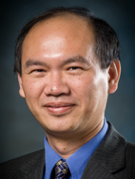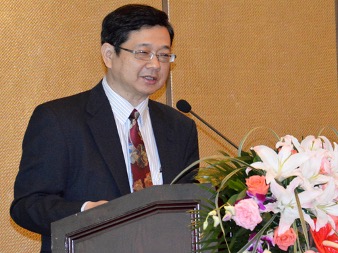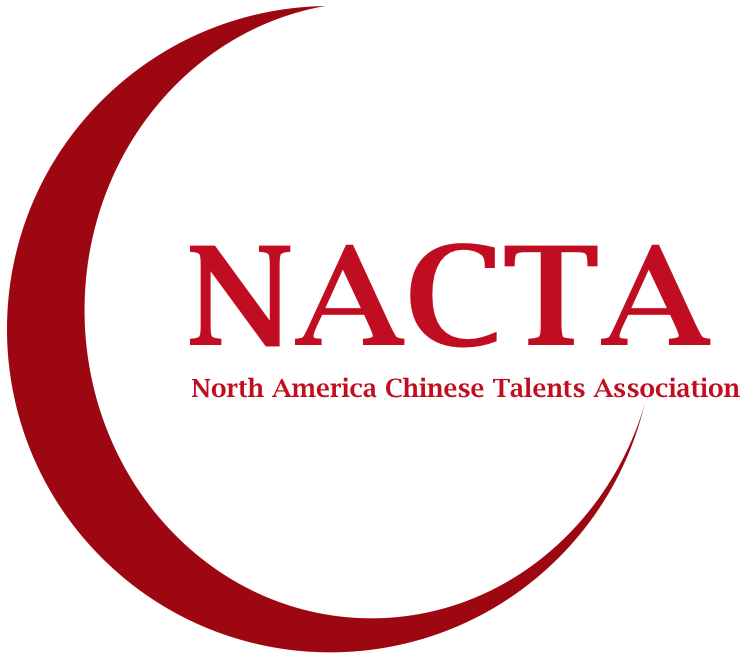
Prof. Meikang Qiu
Texas A&M University, Commerce, USA
ACM Distinguished Member
Title: AI Enhanced Cyber Security
Abstract: This talk will first illustrate how to use AI techniques to enhance cyber security of various systems. There are several ways to apply AI to cyber security area. This talk will use prediction-based AI technics to enhance the total security of the V2X (Vehicle-to-Everything) communication system. The talk takes serious considerations of latency while implementation the data encryption for V2X communication systems. Furthermore, the talk will discuss about deep reinforcement learning to protect the security of V2X system without scarifying safety of the vehicles. Examples and experimental results will be given to show the detailed techniques on applying AI techniques to enhance cyber security of vehicles, with the potential of implementing them to various cyber-physical systems.
Bio: Meikang Qiu received the BE and ME degrees from Shanghai Jiao Tong University and received Ph.D. degree of Computer Science from University of Texas at Dallas. Currently, He is the Department Head and tenured full professor of Texas A&M University Commerce. He is an ACM Distinguished Member and IEEE Senior member. He is the Chair of IEEE Smart Computing Technical Committee. His research interests include Cyber Security, Big Data Analysis, Cloud Computing, Smarting Computing, Intelligent Data, Embedded systems, etc. A lot of novel results have been produced and most of them have already been reported to research community through high-quality journal and conference papers. He has published 20+ books, 600+ peer-reviewed journal and conference papers (including 300+ journal articles, 300+ conference papers, 100+ IEEE/ACM Transactions papers). His paper on Tele-health system has won IEEE System Journal 2018 Best Paper Award. His paper about data allocation for hybrid memory has been published in IEEE Transactions on Computers has been selected as IEEE TCSC 2016 Best Journal Paper and hot paper (1 in 1000 papers by Web of Science) in 2017. His paper published in IEEE Transactions on Computers about privacy protection for smart phones has been selected as a Highly Cited Paper in 2017-2020. He also won ACM Transactions on Design Automation of Electrical Systems (TODAES) 2011 Best Paper Award. He has won another 10+ Conference Best Paper Awards in recent years. Currently he is an associate editor of 10+ international journals, including IEEE Transactions on Computers and IEEE Transactions on Cloud Computing. He has served as leading guest editor for IEEE Transactions on Dependable and Secure Computing (TDSC), special issue on Social Network Security. He is the General Chair/Program Chair of a dozen of IEEE/ACM international conferences, such as IEEE TrustCom, IEEE BigDataSecurity, IEEE CSCloud, and IEEE HPCC. He has won Navy Summer Faculty Award in 2012 and Air Force Summer Faculty Award in 2009. His research is supported by US government such as NSF, NSA, Air Force, Navy and companies such as GE, Nokia, TCL, and Cavium.
2nd Keynote Speaker

Prof. Wei-Tek Tsai
Beihang University, China
Title: LSO: A Dynamic and Scalable Blockchain Structuring Framework
Abstract: We propose a dynamic and scalable blockchain system framework for structuring a blockchain systems (BC). Traditionally a BC maintain multiple nodes with a smart-contract engine (SC) running on nodes, possibly with one or more Oracles Machines (OMs). However, many sophisticated applications require a much flexible yet still secure and scalable system architecture. The new framework LSO (Ledgers, Smart contracts, Oracles) with an inter-unit collaboration protocol that can be used for system registration, identification, communication, privacy protocols, and scalability management. The LSO framework is a dynamic and scalable framework because BCs, SCs, and OMs can be added without affecting the overall structure and without performance degradation. This framework support this by running a collection of cooperative Collaboration Layers (CLs) that acts like a DNS (Domain Name System) in Internet but this time to interconnect various BCs, SCs, and OMs. This LSO framework is a part of ChainNet initiative where BCs are used as building blocks in information and communication systems.
Bio: Wei-Tek Tsai is a professor of Beihang University, he received the BS degree in computer science and engineering from MIT, Cambridge, Massachusetts, in 1979, and the PhD and MS degrees in computer science from the University of California at Berkeley in 1982 and 1986, respectively. He is also professor emeritus with Arizona State University, Tempe, Arizona. He has worked on a number of topics in software engineering, computer networks, service computing, and blockchains. Currently, he is the director of Digital Society and Blockchain Laboratory, Beihang University. His current research focuses on blockchains, smart contracts, and computational law. He has authored 6 books and more than 600 papers in software engineering, service-oriented computing, and cloud computing with 12K citations and h-index > 59.






